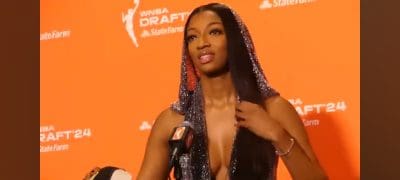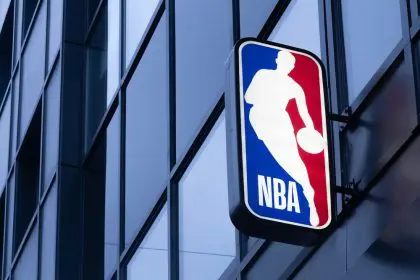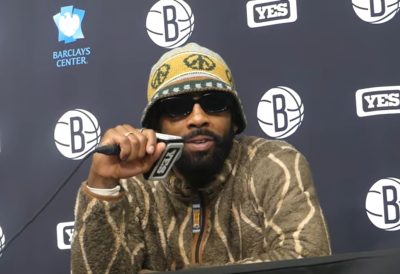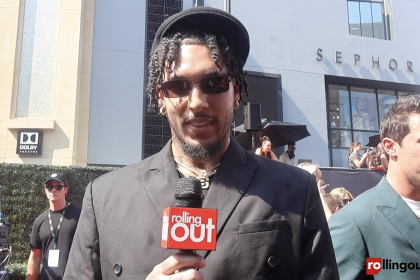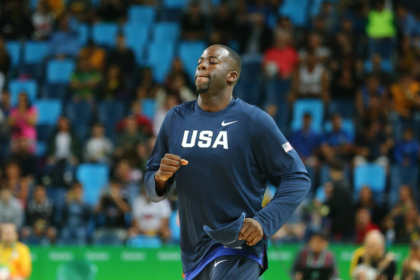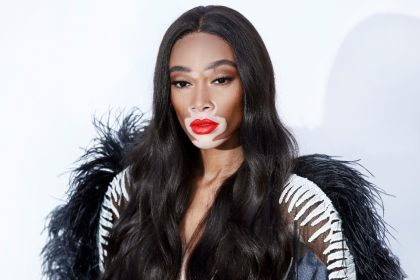“This kid is going to sink us.”
That was my initial impression of Kobe Bean Bryant back in 1996 when I realized my beloved Los Angeles Lakers had traded veteran center Vlade Divac to the Charlotte Hornets for the draft rights to this gangly guard from Lower Merion High School in Pennsylvania who was about the same age as me. “There’s no way this kid is going to do anything in the NBA,” I was convinced. “At best, maybe he’ll be a decent player in five years — if he’s still in the league.”
In my defense, preps-to-pros players were still a risky proposition in 1996; Kevin Garnett had been drafted by the Timberwolves straight out of Farragut Academy in Chicago the year before and the forward had proven to be a rare talent, though he didn’t become a starter until the second half of his rookie campaign. But I felt that “The Kid” (as Garnett was still affectionately known back then) was a fluke and there was a better chance for a young forward to make it in the NBA than a guard. This cocky Kobe kid would be matched up against All Stars like Mitch Richmond, Steve Smiths and — oh yeah, this cagey veteran named “Michael Jordan.” He was going to be in for a rude awakening.
Of course, we all know how the rest of this went. I watched Kobe show flashes of brilliance as a rookie but then choke during the 1997 Western Conference semifinals against the Utah Jazz. His four airballs in the deciding game of that series would become a mythic footnote to the stellar career that would unfold over the next two decades. The All-Star showdown with Jordan, his emergence as a franchise cornerstone alongside Shaq, the game winners, the three-peat, the 81-point game, the MVP award, the battles with the Boston Celtics, the back-to-back championships. It wasn’t all so rosy: his ugly feuds with Shaq and coach Phil Jackson, his rifts with lesser teammates, the late career injuries and losing records. And, of course, the dark, uncomfortable chapter that was Eagle, Co; when Bryant was accused of sexually assaulted an 18 year old hotel worker. His image was forever altered by that arrest and the aftermath, and though the public largely moved on, it’s the “Before/After” moment in his career that has never been totally resolved.
But aside from the specifics of Bryant’s career, his announced retirement last week had me thinking about what Kobe means to the NBA and to the NBA fan. When it comes to Greatest Player of the 2000s discussions, it’s pretty solid to say that Tim Duncan is most deserving of that title. Duncan’s performance was less flashy on the court and less personality was less headline-grabbing off of it, and the San Antonio Spurs will never be as sexy as the Los Angeles Lakers. But Duncan’s stoic stability was as reliable as his bank shot from 2000-2009 and his team’s never dropped out of title contention. Fans and critics could also argue that Shaquille O’Neal was the most dominant player of that era–particularly from 2000 to 2005 — and there’s no denying that Shaq was the focal point of the early 2000s Lakers, though Kobe was individually brilliant during that period, too.
But if he isn’t the “Greatest” or “Most Dominant” player of the 2000s, Kobe Bryant is the most important. Nobody drew ratings like Bryant. Nobody inspired as much hate as Bryant. Nobody could seize a moment quite like Bryant. And in Kobe Bryant, the NBA had a player who could command the general population’s attention the way previous stars like Jordan and Magic Johnson had. Both Jordan and Magic weren’t just great players — they were fun to watch. They were also engaging personalities. Initially, Kobe tried to be the aloof, confident superstar in the Jordan mold and was always smiling and charming in interviews, a la Magic. But post-Eagle, Kobe developed a harder exterior that seemed to be more true to who he was. His prickliness actually made him and his interviews more intriguing — even if you couldn’t stand him, there was always something interesting swirling around Kobe Bryant. That “something” was usually drama, but we love drama.
Kobe Bryant stands as a bridge between two generations of hoops fans. I was a kid who’d grown up on the Michael/Magic/Larry Bird trifecta–the “Holy Trinity” of the NBA’s “Golden Age.” My earliest NBA memories are of Magic vs Larry in the Finals and Jordan winning dunk contests. I was devastated when Magic announced he had HIV and would retire in 1991, I had every Dream Team cup in 1992 and remember the Bulls vs Pistons battles of the late 80s/early 90s. I watched the NBA through the eyes of a kid back then, idolizing sports heroes and putting posters on my wall. Kobe’s emergence coincided with me becoming more of an “adult” hoops fan; picking apart stats, proposing make-believe trades, criticizing GMs. And Kobe became the face of the NBA as I’d come to know it as an adult; the post-Jordan drop in popularity, the dress code, microphones in huddles and coaches being interviewed during games.
But Kobe’s reverence for the era that we’d both grown up watching was evident in not only his well-documented gym rat and video nerd tendencies; his career approach felt very much like a throwback. Both Kobe and Duncan have spent their entire careers with one team — something that’s foreign to the average sports fan under 30. He’s a pillar of Lakers lore now and it feels like he will be the last such player; there will be top draft picks and big name free agents, for sure, but will they be forever tethered to the Lakers the way a Kobe or a Magic was? Hard to say, but it seems unlikely. In playing for so long, Kobe was able to connect younger hoops fans to an older hoops tradition. Even if you never watched one NBA game on CBS or NBC, Kobe gave you a sense of what that period was like — while also being a standard for how the game is viewed today.
Kobe is always going to be polarizing — don’t let the warm and fuzzies in the wake of his retirement fool you. Even now, his poor shooting and large contract are causes for concern as it pertains to the Lakers long and short term plans. He’s still about as cuddly as a porcupine and no one seems to know what this guy will be able to do once he hangs up his sneakers for the final time. But Kobe’s retirement, as well as the looming finality of Duncan, KG and Dirk Nowitzki’s careers, feels like the end of an era. And in watching that ending, we’re also closing the chapter on the 80s and 90s NBA for good. It was a great ride.
Thanks for the memories.


